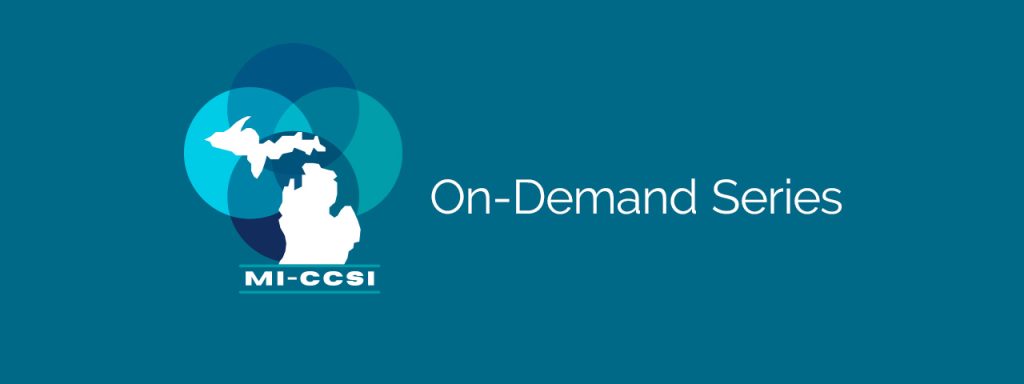

SBIRT Learning Series
SBIRT Learning Series – Recorded (On Demand) Training
Utilizing the SBIRT Approach to Optimize Alcohol & SUD Care
This learning series is comprised of seven recorded vignettes and two optional practical skills application simulation activities that provide the key components to successfully implement SBIRT (Screening, Brief Interventions, and Referral to Treatment) a model to screen and coordinate treatment for alcohol (AUD) and substance use disorders (SUD).
The key components include screening for AUD and SUD, completing an effective brief intervention that is based on the concepts of motivational interviewing, and when needed, addressing the need for treatment for dependency.
Each recorded vignette is a different topic and is available for on demand viewing and enduring continuing education credits. Please note, Nurses and Social Workers must complete all vignettes in order to receive continuing education.
If you have questions about or need assistance with this training, please contact Sue Vos at sue.vos@miccsi.org.
Successful completion includes:
- Access the MI-CCSI Learning Management System.
- Create a New User Profile (if a new learner to the system).
- Participate in each desired learning activity.
- Complete the course evaluation after each to obtain continuing education credits.
Click to Access MI-CCSI Learning Management System
Session#1: Introduction to Screening, Brief Interventions, and Referral to Treatment (SBIRT) Model
This session will provide an overview of the substance use continuum, prevalence, impacts, and the SBIRT process.
Total time: 30 minutes
Objectives:
- Review history taking and placement in the substance use continuum.
- State the prevalence of high-risk use and substance use disorder and the proportion of patients with SUD that receive treatment.
- Explain the process of SBIRT and evidence for effective treatment.
Session#2: SBIRT Screening & Assessment
This session will review the alcohol and drug brief screening tools for adolescents and adults and how to maximize patient participation.
Total time: 20 minutes
Objectives:
- Review patient selection, administration and interpretation for assessing SUD.
- Administer and interpret AUD/SUD for adults.
- Administer and interpret AUD/SUD for Adolescents.
- Explain 2 key ways of maximizing patient participation in SBIRT.
Session#3: SBIRT Treatment
This session will explore pharmacological and non-pharmacological treatment options for alcohol use disorder (AUD) and opioid use disorder (OUD).
Total time: 30 minutes
Objectives:
- Describe SUD treatment levels and placement criteria.
- Enumerate the various kinds of non-pharmacological treatment.
- Explain the various pharmacotherapy options for opioid and alcohol use disorders.
Session#4: SBIRT Motivational Interviewing Basics
This session will examine the Spirit of Motivational Interviewing (MI) and key MI concepts and skills
Total time: 55 minutes
Objectives:
- Describe the Spirit of Motivational Interviewing
- Explain Motivational Interviewing Key Concepts – Leveraging change and change talk
- Execute MI skills of reflection, open questions, giving information, and summarizing and asking key questions.
Session#5: SBIRT Brief Interventions
This session will review and demonstrate brief interventions and self-evaluation tool.
Total time: 50 minutes
Objectives:
- Describe brief interventions for high-risk use and problem-use using the FERNSS approach (Feedback, Education, Recommendation, Negotiation, Secure concrete agreement, Set follow-up) and basic principles of motivational interviewing
- Explain and demonstrate how to help patients design personalized behavior change plans (behavior change planning)
- Conduct brief interventions for high-risk use and problem use, scoring satisfactorily on a skills checklist
Session#6: SBIRT Referral to Treatment
This session will explore the steps for referral and initiate treatment.
Total time: 15 minutes
Objectives:
- Identify referral to treatment steps.
- Using a self-evaluation tool, evaluate your performance through the interactive video responses.
Session#7: SBIRT Follow Up
This session will review barriers to durable change in substance use disorder and how to address barriers in follow up visits.
Total time: 20 minutes
Objectives:
- Delineate the barriers to durable changes in drinking and drug use.
- Address those barriers during follow-up visits.
Audience
This course is intended for care teams seeking to implement an approach to address substance use and alcohol use disorders through the Screening, Brief Interventions, and the Referral to Treatment (SBIRT) process.
Faculty
Richard Brown, MD, MPHRetired Full Professor with Tenure, Department of Family Medicine and Community Health, University of Wisconsin, Madison, Wisconsin. He educated more than 2,000 UW health professions and participated in a program to evaluate the effectiveness of SBIRT in eight southeastern Wisconsin high schools. He served as Clinical Director for the Wisconsin Initiative to Promote Healthy Lifestyles (WIPHL) helping 40 general healthcare settings provide over 110,000 alcohol and drug screens and 25,000 interventions and elicit substantial declines in risky and problem drinking, emergency room visits, hospitalizations, and healthcare costs. Dr. Brown was president of the Association for Medical Education and Research in Substance Abuse (AMERSA) and a founding director of Project MAINSTREAM, a federally funded program that enhanced substance abuse education for over 10,000 trainees. After leaving the UW in 2017, Dr. Brown served as a senior medical director and director of population health management for ConcertoHealth, which improved outcomes and reduced healthcare costs for complex, dual-eligible and Medicare Advantage patients.
COST
This training is made available through a grant from the Michigan Department of Health and Human Services (MDHHS) and Centers for Disease Control and Prevention (CDC).
FREE for members; FREE for non-members
This learning series is provided through a grant from the Michigan Department of Health & Human Services and the Centers for Disease Control and Prevention.
Continuing Education Credits
Providers
The AAFP has reviewed Screening Brief Intervention and Referral to Treatment (SBIRT), and deemed it acceptable for AAFP credit. Term of approval is from 01/06/2025 to 11/05/2026. Physicians should claim only the credit commensurate with the extent of their participation in the activity.
Credits Available: up to 3.25
Nurses
This nursing continuing professional development activity was approved by the Wisconsin Nurses Association, an accredited approver by the American Nurses Credentialing Center’s Commission on Accreditation.
WNA Approval #: WICEAP-0388
Contact Hours: 5
Criteria for Successful Completion:
The participant must listen to all recorded vignettes and complete and submit the evaluation. The participant must complete all online learning sessions by November 30, 2025
Social Workers
This course is approved by the NASW-Michigan.
Contact Hours: 5
NASW-MI Approval #: MCCS110425-00
Approval Term: 01/01/2026-12/31/2026
Criteria for Successful Completion:
The participant must listen to all recorded vignettes and complete and submit the evaluation.
Questions
If you have any questions, contact Sue Vos at sue.vos@miccsi.org